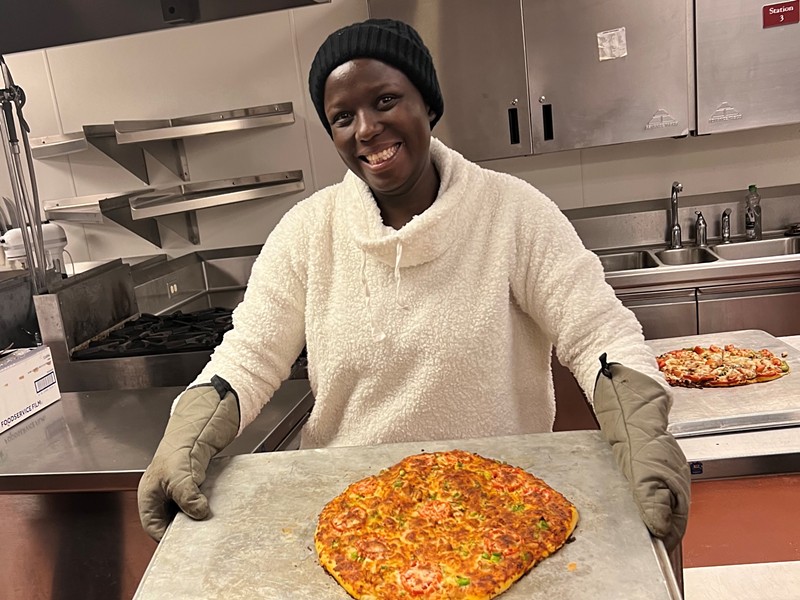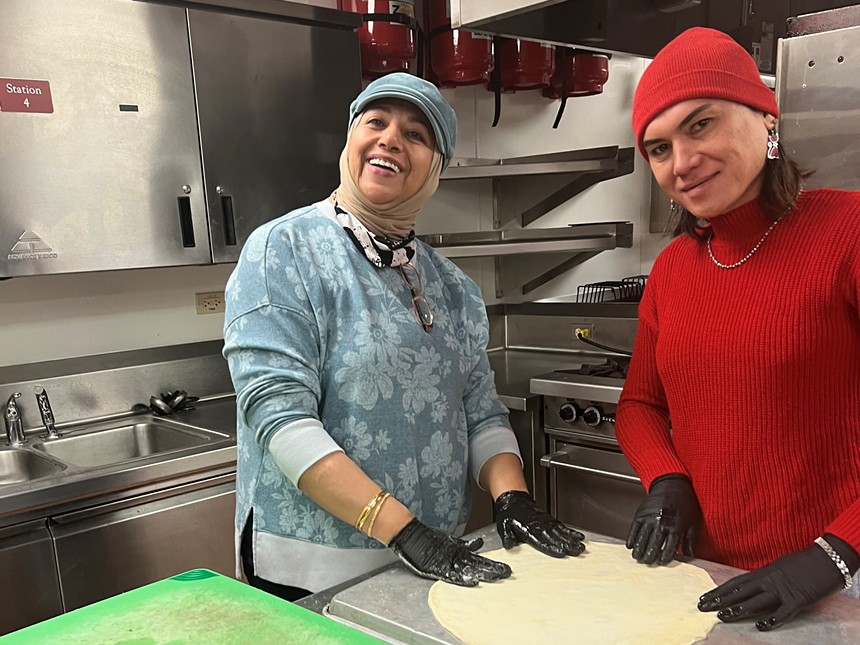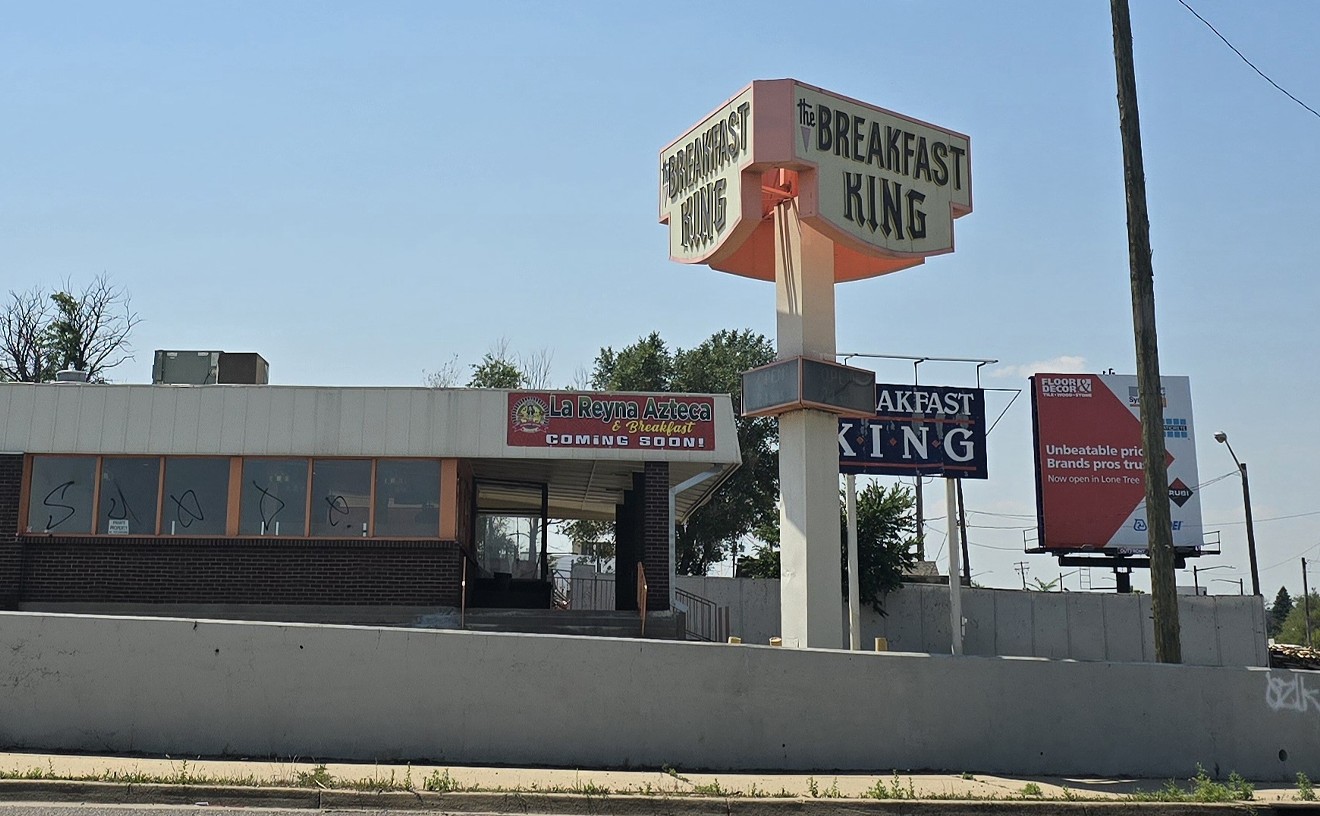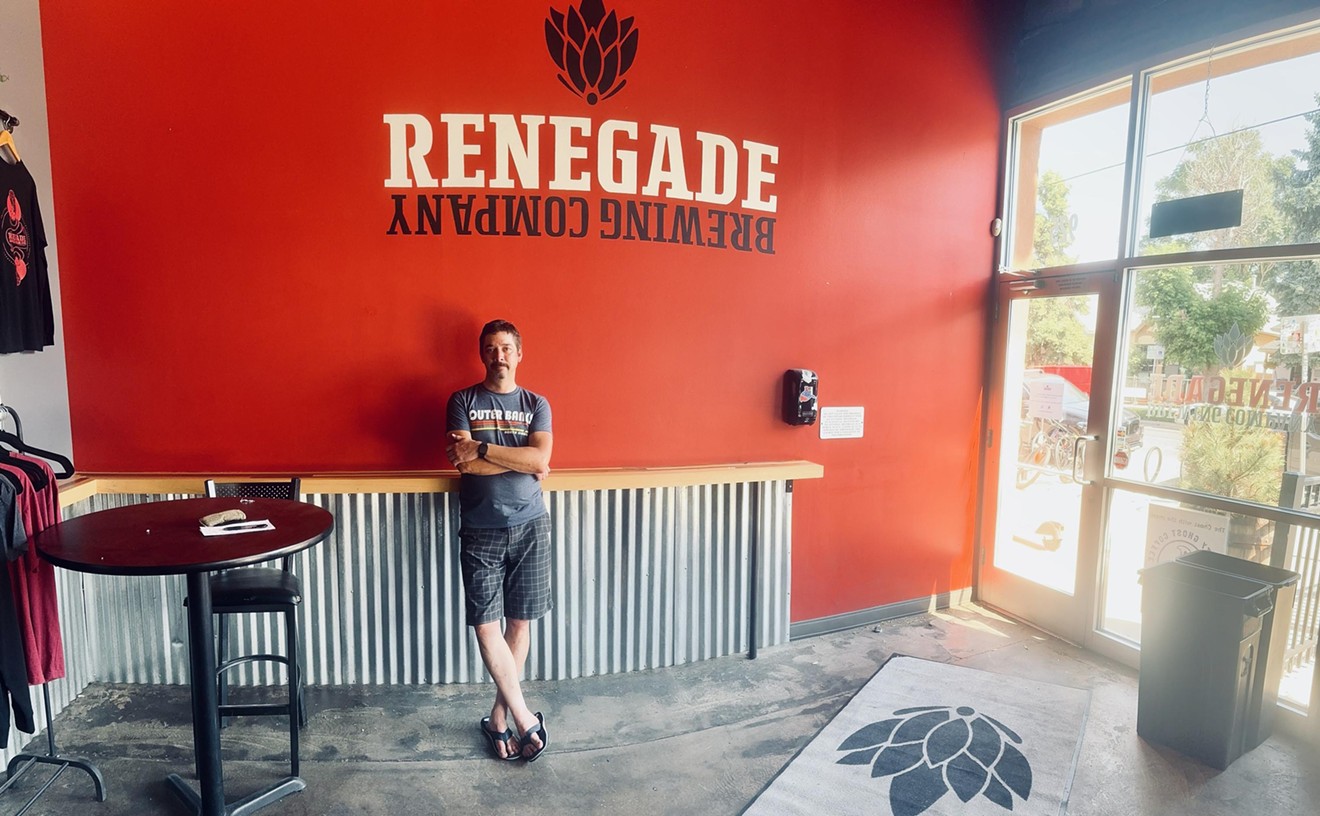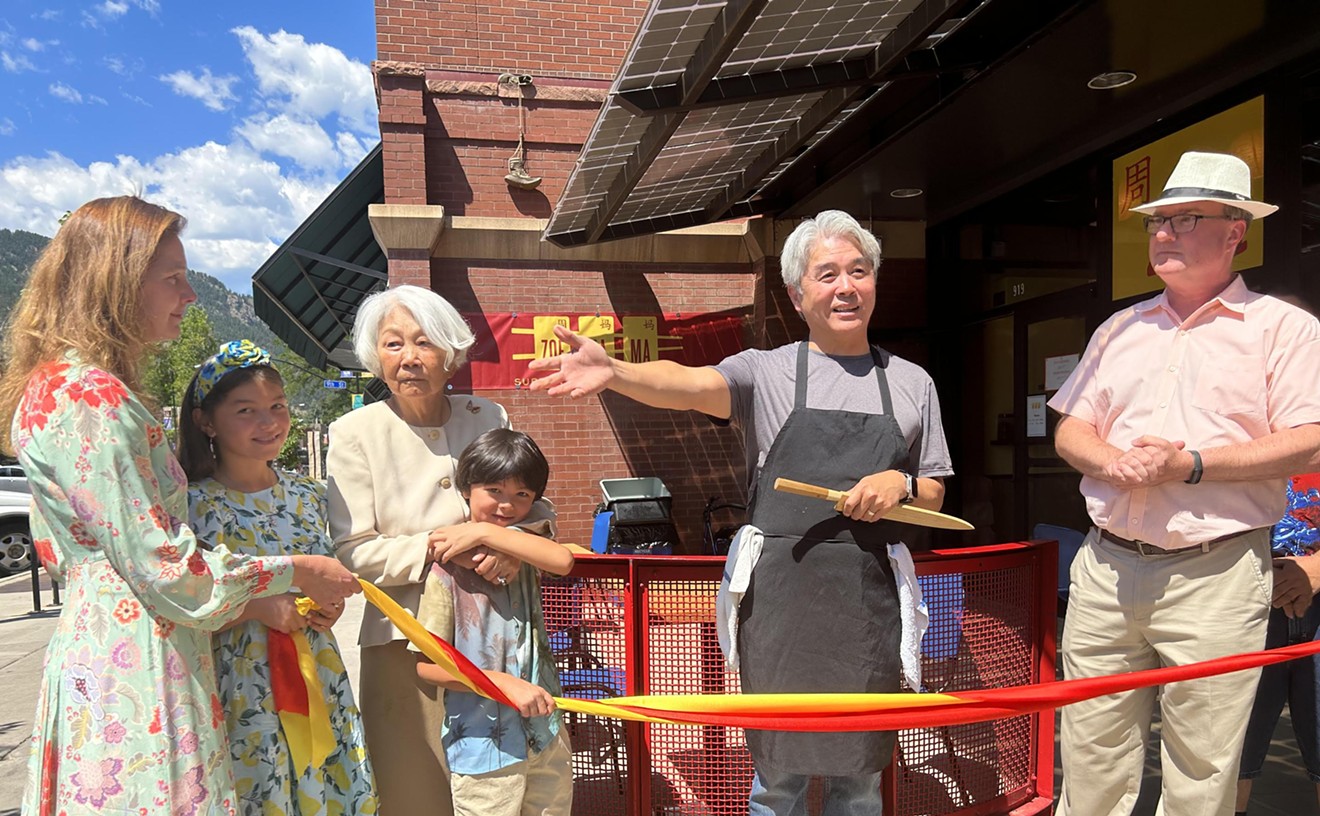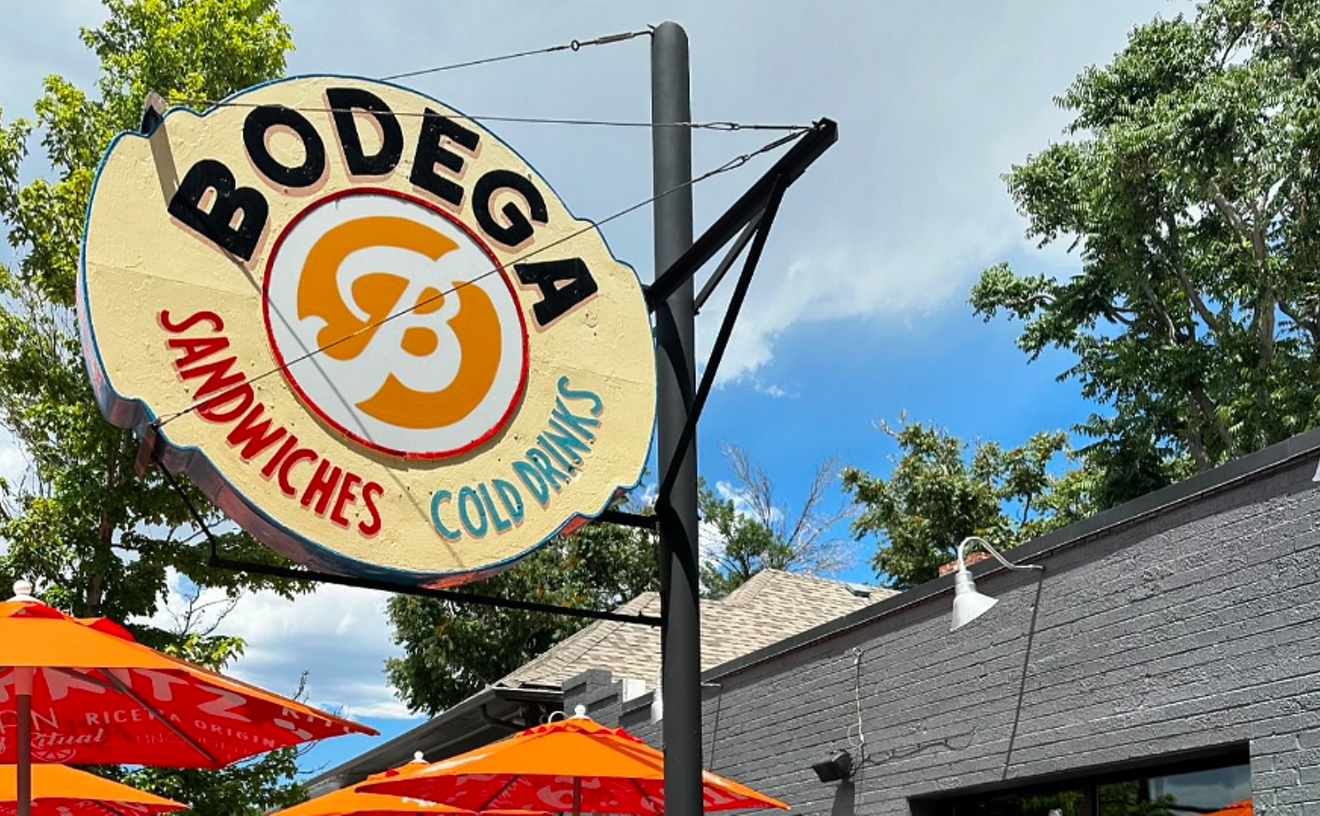“We're blowing away the average employment rate ninety days after training, and the average hourly rate for recently resettled folks nationally,” says David Corsun, associate professor and director at the Fritz Knoebel School of Hospitality Management at the University of Denver.
The school runs the Ready for American Hospitality (RAH) program, which provides refugees with training in food safety, workplace culture and general kitchen skills, as well as help with employment opportunities. On Thursday, February 23, program participants, working alongside DU students and acclaimed chef Zoe Adjonyoh, will host the annual Public Good Gala.
“The program serves an audience comprised of refugees and asylum seekers,” explains Corsun, adding that it also trained immigrants when then-President Donald Trump temporarily banned refugees from entering the United States. “Because the current administration has reopened the United States to receiving refugees and asylums, we have way more than enough folks resettling in Denver to operate the program with that primary and desired audience.”
Refugees are connected with RAH through its partnership with the African Community Center, which refers refugees to the program. “We've had students from Syria, Afghanistan, Democratic Republic of the Congo, Eritrea, Ethiopia, Colombia, Cuba, Argentina, Thailand, Vietnam — all over the world,” says Corsun. “It's all people who have been displaced, have been in refugee camps, and have been able to resettle here in the U.S. through the legal process that exists for doing so.
The school runs the Ready for American Hospitality (RAH) program, which provides refugees with training in food safety, workplace culture and general kitchen skills, as well as help with employment opportunities. On Thursday, February 23, program participants, working alongside DU students and acclaimed chef Zoe Adjonyoh, will host the annual Public Good Gala.
“The program serves an audience comprised of refugees and asylum seekers,” explains Corsun, adding that it also trained immigrants when then-President Donald Trump temporarily banned refugees from entering the United States. “Because the current administration has reopened the United States to receiving refugees and asylums, we have way more than enough folks resettling in Denver to operate the program with that primary and desired audience.”
Refugees are connected with RAH through its partnership with the African Community Center, which refers refugees to the program. “We've had students from Syria, Afghanistan, Democratic Republic of the Congo, Eritrea, Ethiopia, Colombia, Cuba, Argentina, Thailand, Vietnam — all over the world,” says Corsun. “It's all people who have been displaced, have been in refugee camps, and have been able to resettle here in the U.S. through the legal process that exists for doing so.
“They've all been vetted by the Department of State, and they come here legal and able to work. But most of them, nearly all, have not had U.S. work experience. Their home culture differs often on many, many dimensions," he adds. “Helping them acclimate to life here in Denver, and more broadly in the U.S., is really a critical component of the training. Their interaction with our students is one of the things that we have found has a significant, profound impact on them.”
Though students, who are often juniors or seniors in the Hospitality Management course, act as mentors, many refugees view them as their first American friends; they work with participants at school and also visit their homes. “We want our students to get a real sense for the kinds of lives that their employees lead,” explains Corsun.

A refugee participant trains for waiting on tables at the upcoming Public Good Gala.
Ready for American Hospitality
From writing resumes to bussing tables, the program provides real-world experience for students and refugees alike, and the Public Good Gala offers specific training. Participants "interview for the different positions that are available, and then the Human Capital students work side by side with them to staff,” says Corsun.
“We’re able to apply our knowledge with the RAH students while simultaneously preparing them for jobs and life in the United States,” adds Turenne. “The RAH students have had the opportunity to follow us along in interviews, and now are training for the job they were hired for.”
"I've learned things I didn't know before," says Pamela Bukuru, a refugee from the Democratic Republic of the Congo who's Turenne's protégé, "like cooking pizza and washing plates in the machine. I especially enjoy [learning] how to behave when we work, how to get a schedule, and a lot of things...I’m even teaching my husband at home, and showing him how to behave at his workplace!”
After the program ends, Bukuru hopes to find a job in the hospitality industry. “I want to start working in a bakery, in a restaurant, something like that,” she says, adding that her total is to work in a kitchen and simply serve people.
“We’re able to apply our knowledge with the RAH students while simultaneously preparing them for jobs and life in the United States,” adds Turenne. “The RAH students have had the opportunity to follow us along in interviews, and now are training for the job they were hired for.”
"I've learned things I didn't know before," says Pamela Bukuru, a refugee from the Democratic Republic of the Congo who's Turenne's protégé, "like cooking pizza and washing plates in the machine. I especially enjoy [learning] how to behave when we work, how to get a schedule, and a lot of things...I’m even teaching my husband at home, and showing him how to behave at his workplace!”
After the program ends, Bukuru hopes to find a job in the hospitality industry. “I want to start working in a bakery, in a restaurant, something like that,” she says, adding that her total is to work in a kitchen and simply serve people.
Bukuru, Turenne and other students and refugees will all demonstrate their skills at the Public Good Gala, the culmination of the RAH program. Chef Zoe Adjonyoh, founder of Zoe's Ghana Kitchen, will join students in creating a five-course prix fixe menu that include an appetizer course of red red, a traditional Ghanaian bean stew, and red palm oil confit plantain with guava reduction and avocado-cucumber salsa. Nkrakra, a light soup with chicken, will follow, along with a charred okra salad with Osu ranch dressing. The main course will be groundnut stew with lamb, dodo and yam; vanilla ice cream and nkatse, which is similar to nut brittle, will be the dessert. Each course will be paired with a variety of vintages, courtesy of Public Good Gala wine partners Breakthru Beverage and Hess-Persson Estates.
Tickets to the event are $135 per person or $1,080 for a table of eight; the Public Good Gala will start at 6 p.m. at 2044 East Evans Avenue on Thursday, February 23.
On May 11, RAH will host another student and refugee-staffed event, the DU Vin Festival Dinner, with guest chef Fariyal Abdulahi, who is a judge on Food Network’s Chopped and Chef de Cuisine at Marcus Samuelsson’s new NYC restaurant, Hav & Mar. Tickets to the dinner, as well as a wine-tasting event on May 13, are available on Eventbrite.
Tickets to the event are $135 per person or $1,080 for a table of eight; the Public Good Gala will start at 6 p.m. at 2044 East Evans Avenue on Thursday, February 23.
On May 11, RAH will host another student and refugee-staffed event, the DU Vin Festival Dinner, with guest chef Fariyal Abdulahi, who is a judge on Food Network’s Chopped and Chef de Cuisine at Marcus Samuelsson’s new NYC restaurant, Hav & Mar. Tickets to the dinner, as well as a wine-tasting event on May 13, are available on Eventbrite.

